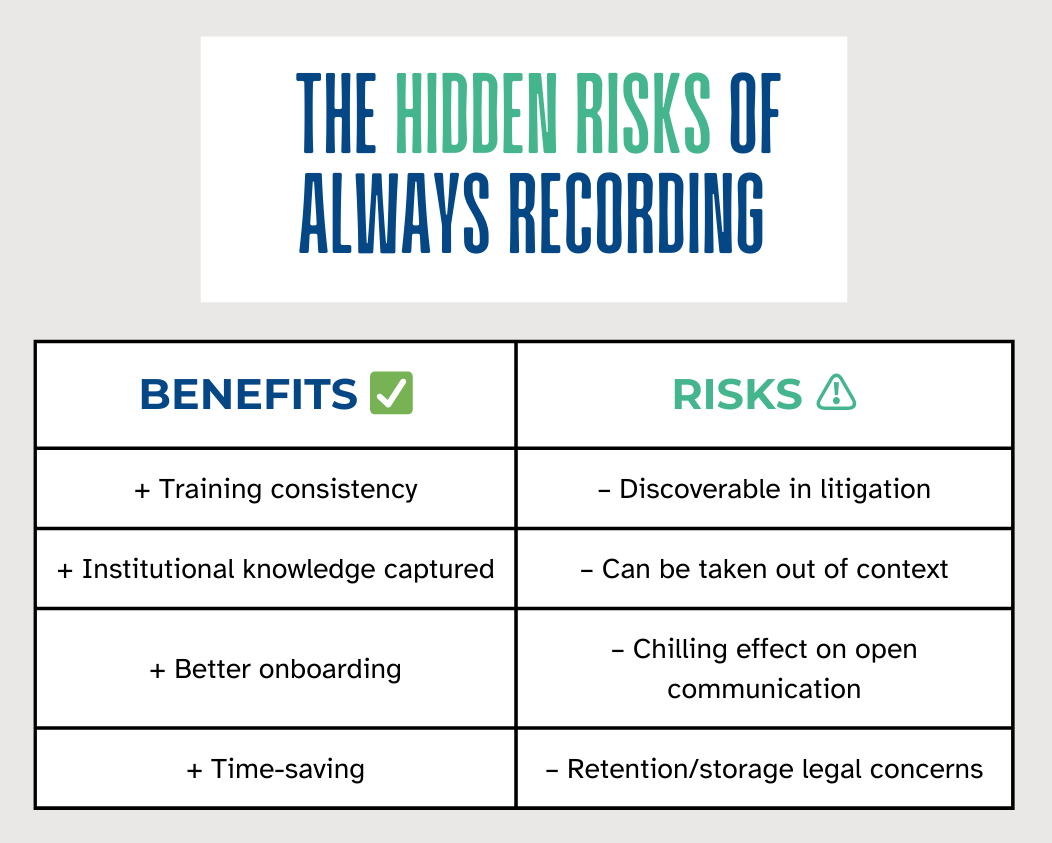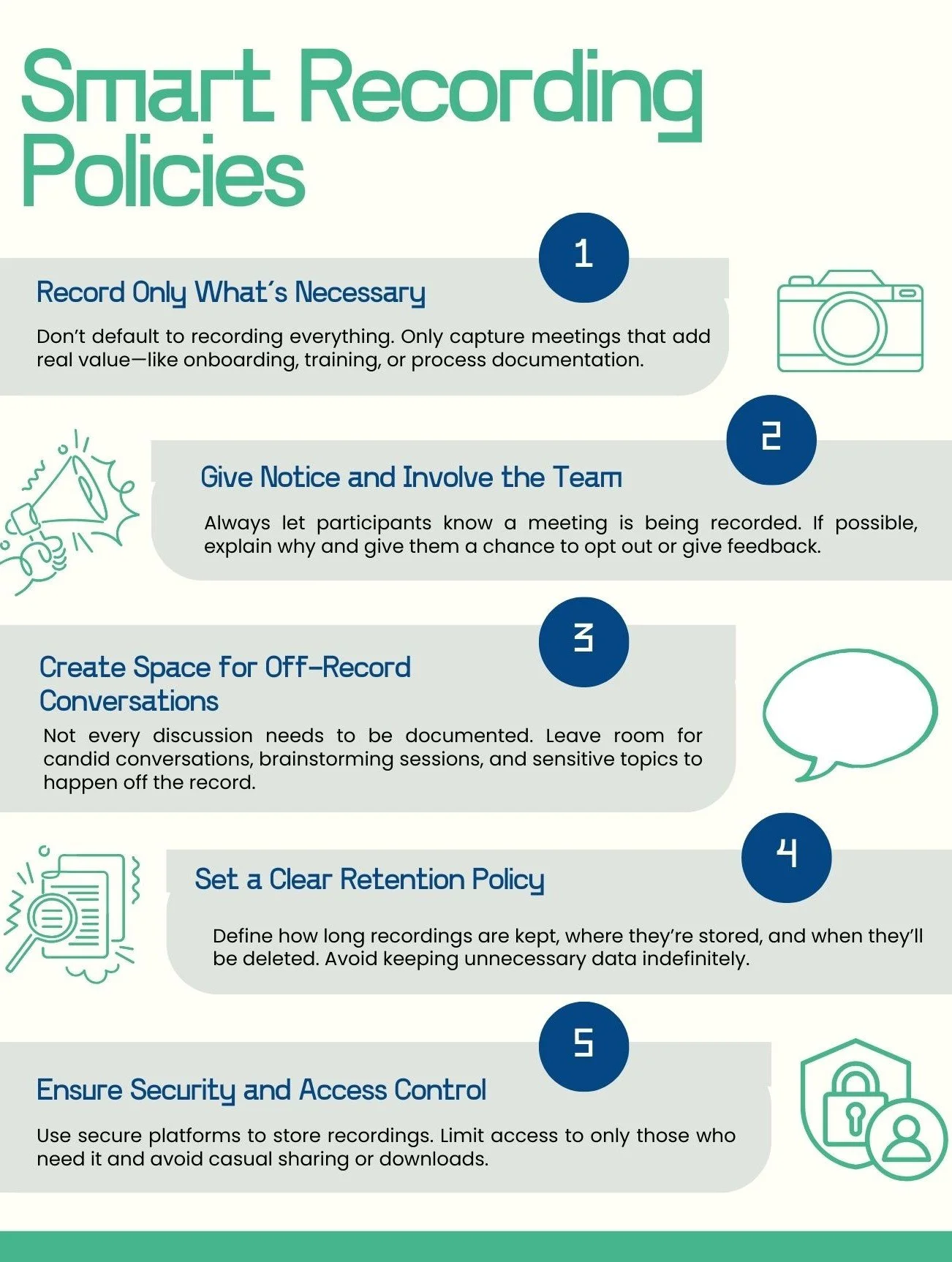When “Record Everything” Becomes a Liability: Rethinking Blanket Recording Policies in Remote Work
As remote and hybrid work increasingly dominate the business landscape, recording conversations has never been easier or more tempting. With a single click, teams can capture virtual meetings, onboarding sessions, and performance reviews, complete with auto-generated transcripts and AI-powered summaries. It’s efficient. It promotes transparency. It preserves institutional knowledge.
But it also creates risk.
In the rush to streamline communication and documentation, many companies overlook the legal implications of keeping a digital paper trail for every internal conversation. Those recordings, once created, are subject to discovery, which can turn even routine internal discussions into evidence in a lawsuit.
Why recordings can be discoverable
In any litigation, one party can request access to documents and communications that are relevant to the claims or defenses in the case. This discovery process isn’t limited to formal written communications like emails or contracts. Audio and video recordings are fair game.
For example, if a former employee alleges they were wrongfully terminated or retaliated against, they may request the recording of a meeting where their performance or conduct was discussed. If a vendor alleges breach of contract, they could demand access to calls where the team explored switching providers before the contract term ended.
Even if those conversations weren’t inappropriate or unlawful, selective excerpts can be taken out of context, forcing the company into a defensive posture. In high-stakes litigation, how it sounds is sometimes as important as what was actually said.
The Hidden Risks of Always Recording
The cultural cost of constant recording
Beyond legal exposure, there’s another consequence to consider: what universal recording policies do to workplace culture.
When employees know every conversation is recorded, they become more cautious. That might sound like a good thing—after all, no one wants to be reckless—but it can discourage open, honest dialogue. Team members are less likely to raise concerns, challenge decisions, or float half-baked ideas if they know those comments could be preserved, replayed, or misunderstood later.
This kind of self-censorship limits collaboration and undermines psychological safety, both of which are essential for teams to function at a high level.
So how should companies approach recordings?
This isn’t an argument against recording entirely. There are legitimate and strategic uses for recorded conversations. Onboarding, training, process documentation, and knowledge transfer are all areas where recordings can add significant value. They create reusable content, reduce repetition, and ensure consistency.
But a one-size-fits-all, record-everything policy is both unnecessary and potentially harmful. Here are some things to consider when crafting your company’s call recording policy:
Be deliberate: Identify which types of meetings are worth recording, and why
Give team a heads-up (and ideally, a say) when recordings will happen
Create space for unrecorded, candid conversations
Establish reasonable retention policies so recordings aren’t kept indefinitely
Smart Recording Policies
Intentionality over convenience
As with many things, the tools that make remote work easier also complicate it. Recording software, AI transcription tools, and cloud storage platforms have created an environment where it feels easier to capture everything than to decide what’s truly worth saving.
Focus on intentionality over convenience. Being selective about what and when you record doesn’t just reduce legal risk. It also helps preserve a culture of trust and candor.


